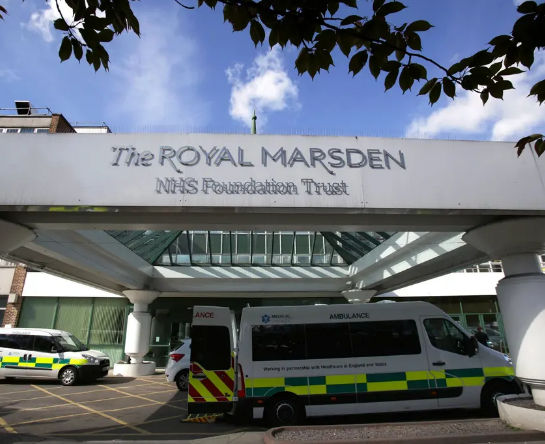Regularly drinking tea and coffee linked to lower risk of stroke and dementia
Alzheimer’s Research UK cautions study is not able to ‘pinpoint cause and effect’
Drinking multiple cups of tea and coffee a day has been associated with a lower risk of stroke and dementia, according to a new study.
Research published in the https://pipperemro.peatix.com/view PLOS Medicine journal said those who drank two to three cups of coffee, or three to five cups of tea – or a combination of four to six cups of both – could possibly have a lower risk of developing a condition.
Drinking two to three cups of coffee with two to three cups of tea was associated with a 32 per cent lower risk of stroke and a 28 per cent lower risk of dementia, according to the study.
Consumption of coffee alone or in https://form.jotform.com/213202598109049 combination with tea was also associated with lower risk of post-stroke dementia, it said.
Dr Rosa Sancho, head of research at Alzheimer’s Research UK, cautioned https://silcontrolpills.wordpress.com/2021/11/17/%e0%b8%a3%e0%b8%b5%e0%b8%a7%e0%b8%b4%e0%b8%a7-silcontrol-%e0%b8%9c%e0%b8%a5%e0%b8%a5%e0%b8%b1%e0%b8%9e%e0%b8%98%e0%b9%8c%e0%b8%ab%e0%b8%a3%e0%b8%b7%e0%b8%ad%e0%b8%a2%e0%b8%b2%e0%b8%ab/ that dementia risk depends on the “complex interaction of our age, genetics and lifestyle”.
“Studies like this one are not able to pinpoint cause and effect, and while the researchers attempted to control for other factors that could affect a https://about.me/pipper person’s risk of stroke and vascular dementia, no firm conclusions can be made about whether tea or coffee cause this lower risk," she said.
"Participants only https://www.reddit.com/user/pipperemro/comments/qvxf16/httpswwwipressusacomsponseredrapidketocutreviewsdo/ reported tea and coffee consumption at the beginning of the study, and there is no data on long-term habits, so it’s not clear how relevant the findings are to long-term brain health."
Dr Sancho added: “While previous studies have looked at associations between tea and coffee consumption and better brain health, https://www.wattpad.com/1155412673-rapid-keto-cut there has been inconsistency in findings.
“Future research with participants of a range of ages and ethnicities will be needed to fully understand what types of dementia and stroke are associated https://www.bloglovin.com/@pipperemro/rapid-keto-cut-weight-loss-supplement-really with tea and coffee drinking.
“Participants in this study reported themselves to be mainly white British (96 per cent), therefore we cannot infer an association that is relevant to everyone in the UK.”
A stroke is a serious life-threatening medical https://telegra.ph/Rapid-Keto-Cut---Weight-Loss-Supplement-Really-Work-Safe-or-not-Any-Facet-Effects-11-17 condition that happens when the blood supply to part of the brain is cut off.
They are most commonly caused by https://medium.com/@pipperemro/%E0%B8%A3%E0%B8%B5%E0%B8%A7%E0%B8%B4%E0%B8%A7-silcontrol-%E0%B8%9C%E0%B8%A5%E0%B8%A5%E0%B8%B1%E0%B8%9E%E0%B8%98%E0%B9%8C%E0%B8%AB%E0%B8%A3%E0%B8%B7%E0%B8%AD%E0%B8%A2%E0%B8%B2%E0%B8%AB%E0%B8%A5%E0%B8%AD%E0%B8%81%E0%B8%A5%E0%B8%A7%E0%B8%87-60399c8e2b41 blood clots. Signs that someone is having a stroke can include their face, mouth or both dropping down on one side and slurred speech and weakness of the limbs.
Stroke strikes every five minutes, according https://works.bepress.com/pipper-emro/ to the Stroke Association, which says 100,000 people are affected every day. There are 1.3 million stroke survivors in the UK.
Dementia is not a single illness, but a group of https://www.scribd.com/document/540344983/Rapid-Keto-Cut symptoms caused by damage to the brain. Signs of the condition can include memory loss, such as remembering past events much more easily than recent ones, or problems thinking or reasoning, or finding it hard to follow conversations or TV programmes.
According to Alzheimer’s Research https://site-6107326-60-4087.mystrikingly.com/blog/rapid-keto-cut-weight-loss-supplement-really-work-safe-or-not-any-facet UK, 600 people in the UK develop dementia every day, with higher incidence rates among women. People over the age of 65 are much more likely to get dementia, but it can affect younger people too.
Some people may be more likely to https://silcontrolpills.tumblr.com/post/668077323121295360/%E0%B8%A3-%E0%B8%A7-%E0%B8%A7-silcontrol develop dementia than others, like those who have had a stroke, or who have diabetes, high blood pressure, high cholesterol and depression.
For their study, researchers in China https://silcontrolreviews.blogspot.com/2021/11/silcontrol.html and the US used volunteers from an existing study, the UK Biobank, who were followed up over a period of 10-14 years. In total 365,682 participants, aged between 50 and 74, took part in the research.
Participants self-reported their tea and https://silcontrolreviews.gumroad.com/l/silcontrolthailandpills coffee drinking habits at the beginning of the study. Researchers then recorded the numbers of people who went on to have a stroke (2.8 per cent) or develop alzheimer’s disease or vascular dementia (1.4 per cent).
They found that drinking tea and coffee was https://ckasouhblehoboctn.blogspot.com/2021/11/blog-post.html linked to a lower risk of having an ischaemic stroke (caused by a blocked blood vessel) and vascular dementia, rather than a haemorrhagic stroke (caused by a burst blood vessel) or alzheimer’s disease.




Comments
Post a Comment